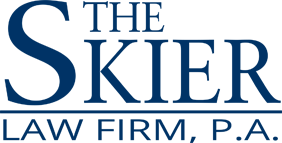
Healthcare Fraud
WEST PALM BEACH HEALTHCARE FRAUD ATTORNEY
Florida is a major target for federal prosecutors charged with investigating healthcare fraud. The reason for this is not hard to understand. A significant share of the Florida population receives Medicare and Medicaid benefits. Indeed, according to the Henry J. Kaiser Family Foundation, roughly 1-in-5 Floridians are on Medicare. This represents millions of people–and in the eyes of prosecutors, millions of opportunities for fraud.
If you are a healthcare provider in the West Palm Beach area and find yourself the target of a fraud investigation, you need to take immediate action to assert legal rights. The West Palm Beach healthcare fraud attorneys at the Skier Law Firm can help. We represent physicians, nurses, hospitals, pharmacies, and other providers. Whether you are dealing with a civil investigation, or facing possible criminal charges, we offer dedicated, professional representation designed to defend your practice and livelihood.
The federal government takes healthcare fraud seriously. In fact, stories about prosecutions for healthcare fraud routinely make the national news. Healthcare fraud cases are seen as a win-win for the government, which can levy huge fines against providers while at the same time playing to the public’s perception that government waste and fraud are rampant.
If you are a doctor or other healthcare provider, you are at a high risk of being investigated for healthcare fraud. Contact an experienced West Palm Beach healthcare fraud attorney at the Skier Law Firm today.
Types of Healthcare Fraud
We handle all kinds of alleged healthcare fraud, including the following:
- Federal law prohibits payment for referrals: For example, a doctor cannot pay money to another doctor to receive a patient referral.
- Self-referrals: A doctor cannot refer a patient to a healthcare entity if they or a member of their immediate family has an ownership interest in it. There are some exceptions.
- False claims: Bills to the federal government must be accurate. If inaccurate information appears on the bill, then the government can investigate you. Common errors include billing for services that were not provided or for patients who do not exist. A provider might also bill for services or equipment that are not medically necessary. This is a particular type of billing fraud. The healthcare provider uses the next highest code for a service when billing, as a way of increasing their reimbursement.
- Prescription Fraud: The government has cracked down on pill mills, where doctors give out a large number of prescriptions for narcotics. Prescription fraud violates many statutes and is a criminal offense.
- Home healthcare fraud: This industry, along with the hospice industry, frequently issue fraudulent certifications for care. The federal government closely monitors these industries for fraud.
-
Attempted Second Degree Murder State vs Mckenley Dismissed
-
Burglary With A Battery State vs. Santos Not Guilty
-
DUI (3rd) State vs. Williams Not Guilty
-
First Degree Murder
State vs. Bruny
Not Guilty -
First Degree Murder State vs. Duncan Dismissed
-
“Scott is a busy man, but he always took the time to answer all questions and express himself when something wasn't clear to me.”
What Kinds of Fraud Is the Government Looking For?
There are a number of federal agencies responsible for investigating healthcare fraud, including the Department of the Health and Human Services and the Department of Justice. The main thing these agencies are looking for are false claims for reimbursement filed with Medicare, Medicaid, or another federal benefits program. Some of the more common types of healthcare fraud include:
- False Claims Act – This is not a healthcare-specific law. Rather, it is a catch-all federal statute designed to punish anyone who “knowingly presents, or causes to be presented, a false or fraudulent claim for payment or approval.” So if a doctor bills Medicaid for a service that was never performed–or not medically necessary under the program’s rules–that would violate the False Claims Act.
- Anti-Kickback Law – This law expressly applies to federal healthcare programs. The basic idea is that a healthcare provider cannot pay for referrals, or accept any compensation in exchange for making a referral with respect to any patient covered by Medicare or Medicaid.
- Stark Law – This refers to a series of federal statutes that specifically target self-referral, that is a scenario where a physician refers a patient to a healthcare services entity where they, or an immediate family member, have a financial interest. In other words, if a doctor refers a patient to a clinical lab where their spouse is a co-owner, that would violate the Stark Law, unless one of several exceptions enumerated in the law applies.
- Prescription Fraud – In light of the ongoing opioid crisis in Florida and throughout the United States, federal law enforcement has renewed efforts to crack down on doctors and pharmacists suspected of running “pill mills” that over-prescribe drugs.

Penalties for Healthcare Fraud
Those convicted of healthcare fraud can face a host of civil and criminal penalties. Civil penalties can often be just as severe as criminal one, even if they do not leave you with a criminal record. For example, a civil case could result in you:
- Repaying money to the government
- Losing the ability to get future reimbursements
- Barred from participating in the federal health programs
Criminal penalties you could face include:
- A maximum of 10 years in prison for each count of healthcare fraud
- A maximum of 20 years in prison for each count of fraud that results in bodily injury to a patient
- A life sentence if your healthcare fraud caused the death of a patient
Not every defendant will face the maximum in jail. However, even a minor criminal penalty could make it impossible for you to gain certification in another jurisdiction. A criminal conviction can also cause you to lose standing in the community. At the Skier Law Firm, we aggressively defend West Palm Beach doctors accused of health care fraud so that they can continue with their practices.

